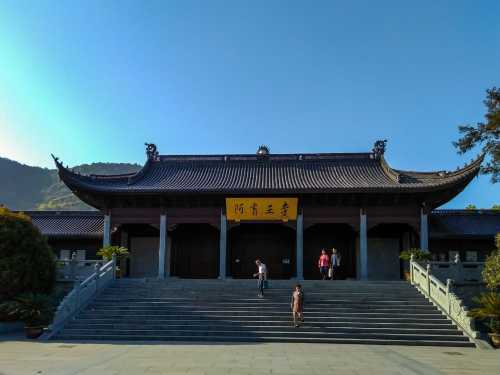Popular Trip Moments
🌸 Spring Blossom Spots in Ningbo: Hidden Gems for Perfect Photos! 📸 | 🌷 Sunlit Tulips at Academician Park: A Hidden Gem in Ningbo! 🌞 | 🌸 Hidden Cherry Blossom Paradise: 100,000+ Trees at Greenfields Happy Valley! 🌸 | 🌸 Romantic Cherry Blossom Spot in Ningbo: A Must-Visit Near the Metro! 🌸 | Dacixi also has its own Kanas Lake | Do You Know These Great Places for Spring Hiking During the May Day Holiday? | I've been to Dongqian Lake three times and finally figured out how to enjoy it properly. | Who says Ningbo is a tourism desert! Let me show you how to enjoy it | For the upcoming May Day holiday in Ningbo, I recommend heading straight to Tianyi Square first | Museum Recommendation | Zhenhai Coastal Defense History Memorial Hall | Who hasn't been to this white villa yet! | First Time Discovering These Beautiful Places in Ningbo | Stumbled Upon a Southern French Estate: This Seaside Villa in Ningbo Is Stunningly Beautiful | 51 Where to Go | A 2-Day 1-Night Complete Guide to Ningbo Qianwan New District | Stay in a Fairy Tale Treehouse in Ningbo's Forest for Fresh Air and Clean Lungs! | Fenghua Xikou Vacation | Stay in a Landscape Painting from Tang Poetry!!! | Ningbo: Direct Subway Access! A Beautiful, Less Crowded Getaway | Perfect Place for Kids! | Discover the Hidden Gem of Zhejiang: 3-Day 2-Night Self-Driving Tour to Ningbo Ninghai | At this time of year, Santorini by the sea is so romantic | Zhejiang Staycation | Yuyao Homestay | Perfect for Short Trips | Yangtze No. 3 Cruise: An All-Inclusive Luxury Journey Through the Three Gorges | Must-Stay Series: This Ningbo Hotel Amazed Me - Ningbo Jinmao Canopy Hotel | Ningbo In-Depth Travel Guide | A Poetic Collision of Mountains, Sea and History | Ningbo two days and one night nanny-level travel guide super detailed without pitfalls | Tengtou Village: From "Poor Village" to "Global Top 500 Eco-Village" - A Legend of Common Prosperity | Hilton Ningbo Yinzhou C position pet friendly | Welcome to Ningbo, where the phone is turned off!!! It's truly beautiful! | Must-Stay Series: This Ningbo Hotel Amazed Me - Highly Recommend Ningbo Grand Hotel | Four Clean Beaches Near Shanghai, Jiangsu, and Zhejiang Perfect for Relaxing with Kids
Popular Travel Types
Recommended Attractions at Popular Destinations
Bangkok attraction near me | Manila attraction near me | Tokyo attraction near me | Taipei attraction near me | Hong Kong attraction near me | Seoul attraction near me | Kuala Lumpur attraction near me | Los Angeles attraction near me | Shanghai attraction near me | New York attraction near me | Shenzhen attraction near me | Osaka attraction near me | Singapore attraction near me | London attraction near me | Guangzhou attraction near me | San Francisco attraction near me | Beijing attraction near me | Macau attraction near me | Bali attraction near me | Jakarta attraction near me | Paris attraction near me | Ho Chi Minh City attraction near me | Istanbul attraction near me | Phuket attraction near me | Chicago attraction near me | Seattle attraction near me | Toronto attraction near me | Orlando attraction near me | Cebu attraction near me | Chiang Mai attraction near me
Popular Attractions
TSS Earnslaw | Petronas Twin Towers | Gyeongbokgung Palace | The Bund | Universal Studios Japan | Prince Kung's Mansion | Yarra River | Kualoa Ranch | Wat Arun | Shanghai Jade Buddha Temple | Auckland Domain | Shanghai Maglev Train | Basilica Cistern | Tokyo Skytree | Arctic Hall | David Copperfield | Baguio City Market | Black Cat Cruises | Confucius Temple-The Qinhuai River Scenic Belt | Parque Natural | Voie Verte Vannes - Ste-Anne-d'Auray | Baba Gurgur Amusement Park | Hougang Avenue 1 Park | Casino Resort - Spielhalle | Castello di Laconi | Drug Store Museum | Katkade Farm | Capro Space | Devi Mandir (Swar Khas) | Shanghai Wild Animal Park
Popular Restaurants in Ningbo
Seafood House | 余姚伯瑞特酒店·阳明轩 | 宁波香格里拉大酒店·香宫中餐厅 | Dongqianhuhuamaoxi'erdundujiajiudiandatangba | ZhUANGYUANLOU RESTAURANT | YANG MING WEN QUAN SHAN ZHUANG CAN TING | Ninghai Restaurant | Tie Ge Bi ( Yue Hu Sheng Yuan ) | A MAO RESTAURANT | MING COURT | 如辉奉化点心(天一店) | FlavourCourtyard Restaurant | OLD NINGBO ALLEY RESTAURANT | 阿拉名灶·阿拉宁波人的味道(月湖店) | Yi Coffee Buffet | Shan Kui Jia JinZhi Cuisine(1844 Xintiandi ) | 甬上名灶(环城西路店) | CORDIS DONGQIAN LAKE, NINGBO·MING COURT | Ninghai Restaurant (guloufen) | NINGHAI RESTAURANT | 海味世家·本味餐厅(明州里店) | Ninghai Restaurant (simingzhonglu) | RIVERA | COMMUNE(月湖盛园店) | Yong Shang Wai Po Qiao ( Universal Yin Tai Cheng ) | TOP POT TALE | 梅龙镇酒家 | BANANA LEAF | Dining Room | 甬味餐厅·宁波人的味道(天一店)
Popular Ranked Lists
Popular Luxury Hotels Near Birmingham | Popular Luxury Hotels in Astana | Popular Best Things to Do in Jishou | Top 6 Best Things to Do in Hinggan League | Popular Luxury Hotels Near Etretat | Top 5 Local Restaurants in Fusong | Popular Local Restaurants in Baise | Popular Best Things to Do in Zhongxiang | Top 5 Best Things to Do in Danzhou | Popular Luxury Hotels Near Varberg | Top 3 Best Things to Do in Shuozhou | Popular Luxury Hotels Near Tatsugo | Popular Best Things to Do in Lvliang | Popular Local Restaurants in Jincheng | Top 6 Local Restaurants in Jing County | Popular Luxury Hotels Near Norwich | Popular Best Things to Do in Pingxiang | Popular Best Things to Do in Jieyang | Popular Local Restaurants in Chizhou | Top 5 Best Things to Do in Weinan | Top 8 Best Things to Do in Aksu Prefecture | Popular Best Things to Do in Ziyuan | Popular Luxury Hotels in Nizwa | Popular Best Things to Do in Wuzhishan | Top 8 Local Restaurants in Langzhong | Top 4 Best Things to Do in Huidong | Popular Premium Hotels Near Dearborn | Popular Luxury Hotels Near Lazaro Cardenas Municipality | Popular Luxury Hotels Near Province of Palermo | Top 5 Local Restaurants in Tongliao
Payment Methods
Our Partners
Copyright © 2025 Trip.com Travel Singapore Pte. Ltd. All rights reserved
Site Operator: Trip.com Travel Singapore Pte. Ltd.
Site Operator: Trip.com Travel Singapore Pte. Ltd.



















